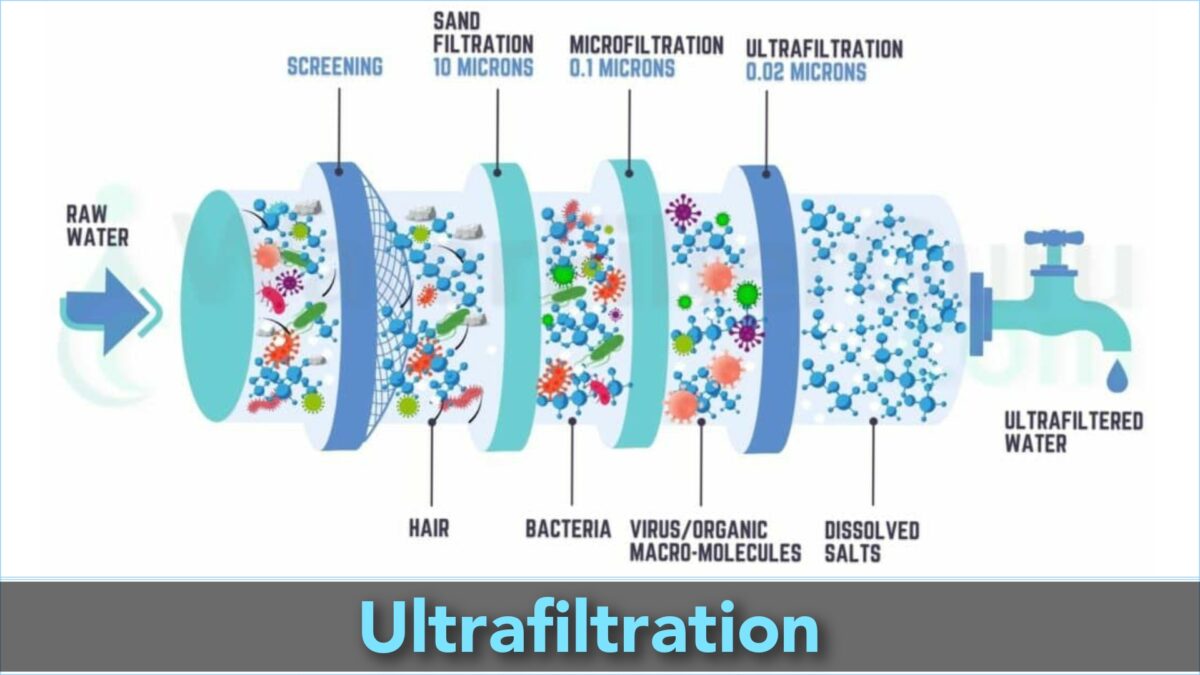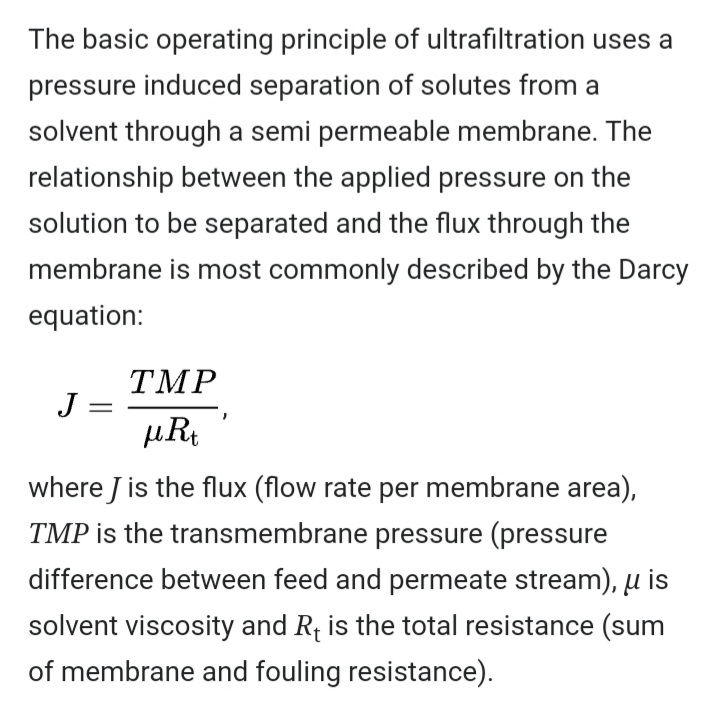Table of Contents
Definition
Ultrafiltration is a type of filtration process that uses a semi-permeable membrane to separate particles and solutes of different sizes from a liquid or gas mixture.
What Is Ultrafiltration?
Ultrafiltration (UF) is a type of membrane filtration used in industry and research to separate macromolecular solutions, especially protein solutions.

This process works by applying pressure or concentration gradients to a semipermeable membrane, which retains suspended solids and solutes of high molecular weight in the retentate, while allowing water and low molecular weight solutes to pass through the membrane as permeate or filtrate. The molecular weight cut-off (MWCO) of the membrane determines its separation efficiency.
While ultrafiltration is often used after microfiltration as a secondary filtration step, it is not fundamentally different from microfiltration. Both processes rely on size exclusion or particle capture for separation. However, ultrafiltration differs from membrane gas separation, which separates based on absorption and diffusion rates.
Ultrafiltration can be operated in cross-flow or dead-end mode, and is used to purify and concentrate macromolecular solutions in various industries, including food and beverage, biotechnology, and water treatment.
How It Works
I have described the working principle of Ultrafiltration.

Applications
- Ultrafiltration removes bacteria, viruses, and other microorganisms from drinking water in water treatment plants.
- Various industries use ultrafiltration to purify water and remove impurities from process water.
- The dairy industry separates milk protein from whey using ultrafiltration, which is used in the production of cheese, yogurt, and other dairy products.
- In the production of vaccines and pharmaceuticals, ultrafiltration removes impurities and concentrates proteins and enzymes.
- Biotechnology uses ultrafiltration to purify and concentrate enzymes, proteins, and other biological molecules.
- The food industry purifies juices, wine, and other beverages by removing suspended particles and macromolecules through ultrafiltration.
- Ultrafiltration separates and purifies various chemicals, polymers, and organic compounds in the chemical industry.
- The oil industry purifies and removes contaminants from oil and gas streams using ultrafiltration.
- Wastewater treatment plants use ultrafiltration to remove solids, bacteria, and viruses from wastewater.
- In medical applications such as dialysis, ultrafiltration removes waste products and excess fluids from the blood of patients with kidney failure.
